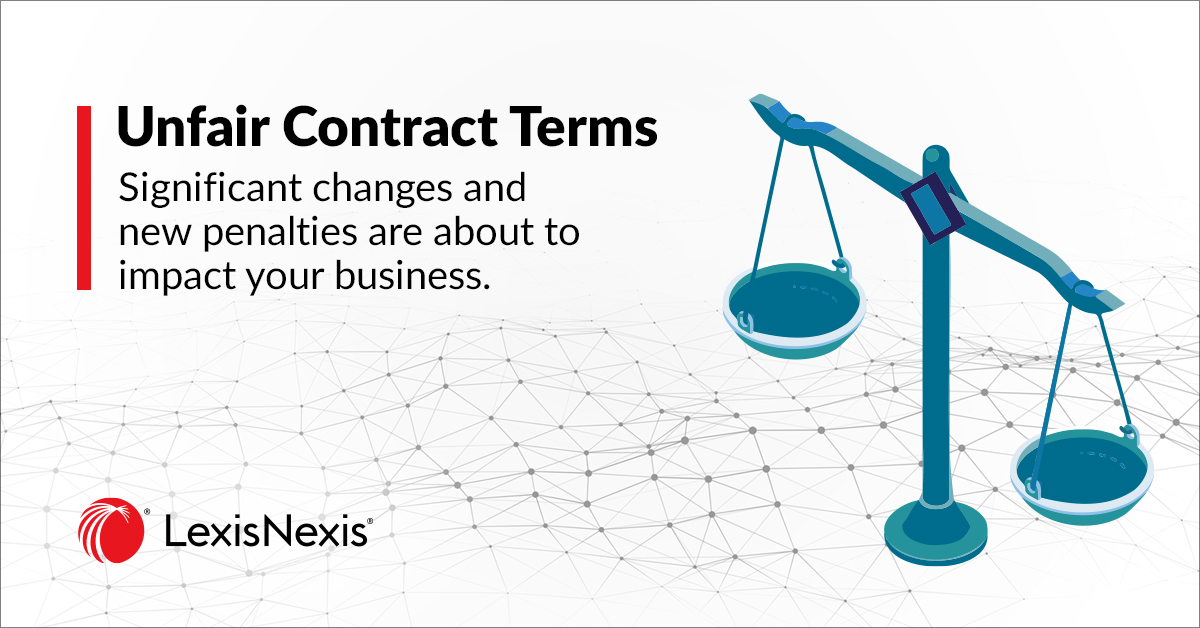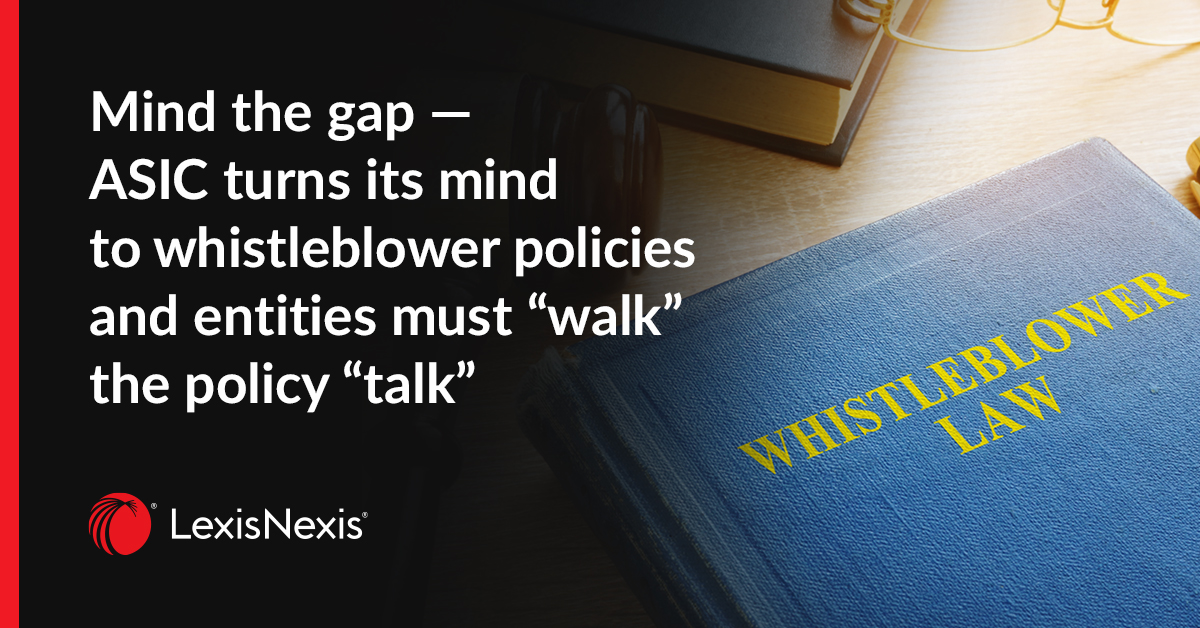
Close your eyes at your peril: former directors penalised for breaches of the Credit Code and ASIC Act.
08 November 2022 08:00
Fiona Thatcher – Senior Legal Writer, LexisNexis Practical Guidance Consumer
In Australian Securities and Investments Commission v Rent 2 Own Cars Australia Pty Ltd (No 2) [2022] FCA 491, the Federal Court penalised two directors of the now-deregistered Rent 2 Own Cars Australia Pty Ltd (‘R2O’) a total of $228,000 for being knowingly concerned with R2O’s unlawful conduct, which included charging excessive interest and misleading consumers.
The decision provides a practical application of the principles used to determine appropriate penalties for contraventions of the Credit Code (the ‘Code’), Schedule 1 to the National Consumer Credit Protection Act 2009), and the ASIC Act. The case also demonstrates ASIC’s willingness to pursue individual directors who are complicit in a company’s illegality.
Background
R2O provided credit to consumers for the purchase of used cars through hire-to-purchase contracts entered into by its franchisees around Australia.
In 2020, the Federal Court held in Australian Securities and Investments Commission (ASIC) v Rent 2 Own Cars Australia Pty Ltd[2020] FCA 1312 that R2O had breached the Code by:
- instructing its franchisees to use “calculators” that miscalculated weekly repayments under the contracts;
- charging interest rates of more than 48% per annum; and
- failing to include the annual interest rate and the method of interest calculation in the contracts.
The court also found that R2O had engaged in misleading and deceptive conduct and made false and misleading representations in breach of ss 12DA and 12DB of the ASIC Act in respect of the amounts being charged to consumers.
Along with R2O, former directors Paul Green and Timothy Roberts were held personally liable for civil penalty orders. As Mr Green had his eyes “tightly closed” to R2O’s obligations, and Mr Roberts had left the relevant operations to Mr Green, both were “knowingly concerned” in R2O’s contraventions.
After the primary judgment was delivered, R2O went into liquidation then was deregistered, meaning no pecuniary penalties could be imposed on it.
Penalties decision for the breaches of Credit Code
The present proceedings concerned the imposition of pecuniary penalties. In handing down penalties to Mr Green and Mr Roberts, the court had regard to the factors contained in s 113(4) of the Code and s 12GBA(2) of the ASIC Act. The court accepted ASIC’s submissions in relation to all the relevant circumstances of the contraventions, including that:
- the consequences for affected customers were very serious, as many paid more than they should have;
- R2O failed to comply even after ASIC put R2O on notice about its contraventions;
- R2O had no remediation program, compliance system or procedures in place for preventing or identifying breaches;
- R2O took no steps to compensate affected customers;
- had R2O responded quickly to ASIC’s initial concerns, costly proceedings could have been avoided; and
- R2O had not previously been found to have engaged in similar conduct.
The court also applied the Trade Practices Commission v CSR Ltd[1990] FCA 521 and NW Frozen Foods Pty Ltd v Australian Competition and Consumer Commission (ACCC) (1996) 141 ALR 640 factors for determining the appropriate quantum of penalties, including the fact that the contraventions arose out of the conduct of senior management rather than junior staff, that there were gross inadequacies in R2O’s compliance culture, and that the respondents had repeatedly denied breaching the Code and the ASIC Act, and had not cooperated with the regulator.
The court considered that it would be necessary to impose a penalty sufficient such that others in the same industry would not consider the penalty as simply a “cost of doing business” in pursuit of profit, and restated the position articulated by the High Court in Australian Building and Construction Commissioner v Pattinson[2022] HCA 13 that there is no place for a “notion of proportionality” in a civil penalty regime, given the overarching need for deterrence of future similar contraventions.
The court imposed penalties of $138,000 upon Mr Green and $90,000 upon Mr Roberts, restrained both from engaging in credit activity for three years and ordered each of them to pay 50% of ASIC’s costs of the proceedings.
The court said that, had R2O not been deregistered, total pecuniary penalties of $600,000 for breaches of the Code ($200,000 for each set of contraventions) and $175,000 for contraventions of the ASIC Act would have been appropriate. The court mentioned this to give “full effect to the role of general deterrence having regard to the severity of the conduct”.
Key takeaways: breaches of the Credit Code and ASIC Act
In-house counsel and directors alike should heed the truism that prevention is better than a cure, in that compliance is the best way to avoid expensive and embarrassing regulator action. Failing that, swift and commensurate remedial action is the next best thing. Like companies, ASIC and other regulators do not want to be expending precious resources on costly litigation. If your company receives notice of potential wrongdoing, take steps to address the problem before you wind up in court.
Businesses can minimise or avoid costly penalties by:
- ensuring compliance systems are in place to prevent and detect contraventions of the relevant law;
- cooperating with regulators at all times;
- taking immediate and full responsibility for any breaches; and
- acting quickly to remedy any contraventions (including, where relevant, by compensating affected consumers).
Directors should be aware that ASIC will not hesitate to pursue individuals for breaches of ASIC regulations law of which they are knowingly concerned, and this includes passively allowing co-directors to engage in unlawful conduct. Furthermore, simply deregistering a company will not be enough to escape punishment for wrongdoing.
ASIC’s press release on the decision can be accessed here.
Latest Articles
-
 3 tips for banking and finance lawyers when responding to an ASIC enquiry, and how to avoid misleading or deceptive conduct.
3 tips for banking and finance lawyers when responding to an ASIC enquiry, and how to avoid misleading or deceptive conduct. -
 Significant increases to competition and consumer law penalties have commenced and sweeping reforms to the unfair contract terms regime will follow in 12 months’ time.
Significant increases to competition and consumer law penalties have commenced and sweeping reforms to the unfair contract terms regime will follow in 12 months’ time. -
 The Australian Securities and Investments Commission (ASIC) is calling on Australian CEOs, from public companies, large proprietary companies and corporate superannuation trustees to review their whistleblower policies and processes to ensure compliance with private sector whistleblower laws.
The Australian Securities and Investments Commission (ASIC) is calling on Australian CEOs, from public companies, large proprietary companies and corporate superannuation trustees to review their whistleblower policies and processes to ensure compliance with private sector whistleblower laws.
Practical Guidance
Your one-stop solution for accurate legal answers from Australian legal experts. Tools, practically focused guidance notes, checklists, precedents, and training materials support and streamline your legal workflow.
LEARN MORE LexisNexis
LexisNexis